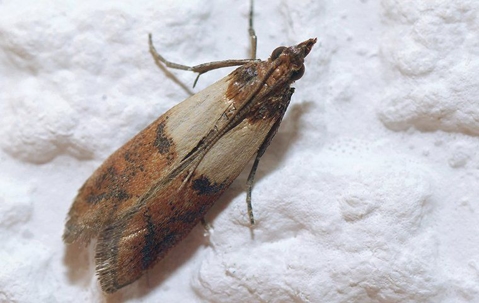Pantry pests are an often-overlooked category of pests that most homeowners don’t prepare for. The term “pantry pest” broadly refers to any pest known to feed on food products typically kept in pantries. These pests are also called “stored product pests.”
The purpose of this article is to outline some key information about these pests to help you prevent them from becoming an issue in your home. We’ll go over some of the types of pantry pests you are likely to encounter, the extent of the damage they can cause if not dealt with, and what you can do to keep them from getting into your pantry, to begin with. Finally, we’ll talk about the professional pest control services in Lawrenceville offered by Procare Pest Services. We’re here to help Lawrenceville homeowners with pantry pests.
Types Of Pantry Pests: A Comprehensive Overview
A number of common pantry pests belong to other pest categories, such as beetles, ants, earwigs, and pillbugs. There are also pantry pests that aren’t likely to be found in other places, and we’ll focus on those for this section.
Two of the most frequent offenders are the Indian meal moth and the merchant grain beetle. The Indian meal moth is relatively easy to identify, as it has a distinct coppery red color on the outside of its wings. It usually measures about ? inch long. Grains, seeds, nuts, dried fruit, bird seed, candy, cookies, and chocolate are all standard parts of its diet.
Contrary to their name, merchant grain beetles usually target cake mixes, cereals, cookies, chocolate, and macaroni. They are about a 1/10 inch long and have flat brown bodies with six saw-like teeth on either side. Now that you know more about pantry pest identification, let’s talk about how these pests cause damage to stored food.
Pantry Pest Damage: How They Ruin Stored Food
A vital part of pantry pest control is understanding the damage they can cause. Merchant grain beetles, for example, can get into packaged goods because of their extremely flat bodies, which allow them to slip into the tiniest cracks in packaging. Pantry pests tend to get into pantries in the first place by being brought in with already-infested items.
In the next section, we’ll discuss how you can prevent these pests from getting into your pantry and ruining your food stores.
Sealing The Deal: How To Properly Store Food To Deter Pantry Pests
The best way to avoid problems with pantry pests in Lawrenceville is to take preventative steps to keep them from getting into your home. Here are a few such steps that should help you deter pantry pests:
- Inspect your groceries for damage in the store before you take them home.
- Go through your pantry every few months and remove any expired goods.
- Use plastic or glass storage containers with tight-fitting lids to store food.
- Periodically empty and clean your pantry to keep it as sanitary as possible.
These tips will help you reduce the risk of a pantry pest infestation in your home. If you’re wondering how to get rid of pantry pests for good, professional pest control is the best way to go.
Pantry Pest Extermination: When To Call In The Professionals For Help
The final and most important step to complete pest control in Lawrenceville is to contact the experts. Procare Pest Services has been helping area residents with pest control for years, and our family-owned company has established a reputation for providing responsive, high-quality customer service. We offer same-day and emergency services, free inspections, and a satisfaction guarantee.
Call Procare Pest Services today for more information.

